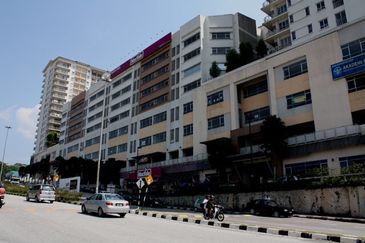
KUALA LUMPUR (June 19): Insisting that the three criteria of case numbers, ICU bed utilisation and vaccination rates are not adequate to capture the complexity of the Covid-19 pandemic, the Malaysian Health Coalition (MHC) has called for additional KPIs to guide the National Recovery Plan.
The criteria are “blunt instruments” that are highly dependent on other variables, like testing numbers and vaccine supply, said the coalition of over 50 organisations and individuals representing health professionals in the country.
"A complex pandemic situation requires sufficient, balanced and nuanced KPIs to accurately measure our progress and performance. These KPIs must be independent and scientific, and their methods should be constant and comparable across time," MHC said in a statement today.
It said additional KPIs to guide the recovery plan could include dis-aggregated data by state/district for more targeted decisions, weightages for vulnerable populations, and diverse metrics to provide granularity for decision making.
"Examples of diverse metrics include the moving weekly numbers of total active cases, percentage of positive tests over total tests performed (with the World Health Organisation target being <5%), the case fatality rate, the number of health workers affected, and the percentage of successful contact tracing within 24 hours of a positive case," it added.
The National Recovery Plan was announced by Prime Minister Tan Sri Muhyiddin Yassin on June 15 as a strategy to transition out of the Covid-19 crisis over four phases.
MHC, in its statement, also stressed that nationwide decisions should not be influenced by lobbying, double standards in enforcement or sudden policy U-turns.
It said government decisions should be predictable to improve public and economic confidence, and therefore the decisions should be truly data-driven.
"While we note that the government will move from one phase to another depending on the statistics, we believe that a scheduled decision-making timetable is helpful. There should also be triggers to return to a higher level of restrictions if the situation worsens.
"We strongly suggest changing the currently confusing xMCO system to a clear-cut system that is more easily understood. Examples are the 'traffic light systems' used in the European Union, Peru or Singapore," it added.
MHC also urged the government to improve data sharing and transparency to enable effective management of the dynamic pandemic situation.
"Sharing of data builds public trust, enables a robust external review by experts, and fosters public-private partnerships. The large amount of data generated daily must be shared in an easy-to-view manner via a public dashboard online.
"Adequate data-sharing across states and districts enable local authorities to tailor pandemic control strategies. With states now allowed to procure vaccines, data-sharing and integration in the National Immunisation Programme can lead to stronger and fairer outcomes," the coalition said.
Get the latest news @ www.EdgeProp.my
Subscribe to our Telegram channel for the latest stories and updates
TOP PICKS BY EDGEPROP

Kaleidoscope Residence
Wangsa Maju, Kuala Lumpur

The Sky Residence @ Shamelin
Cheras, Kuala Lumpur

Lorong Seri Juru, Taman Seri Juru
Bukit Mertajam, Penang

Agile Bukit Bintang
Bukit Bintang, Kuala Lumpur





















